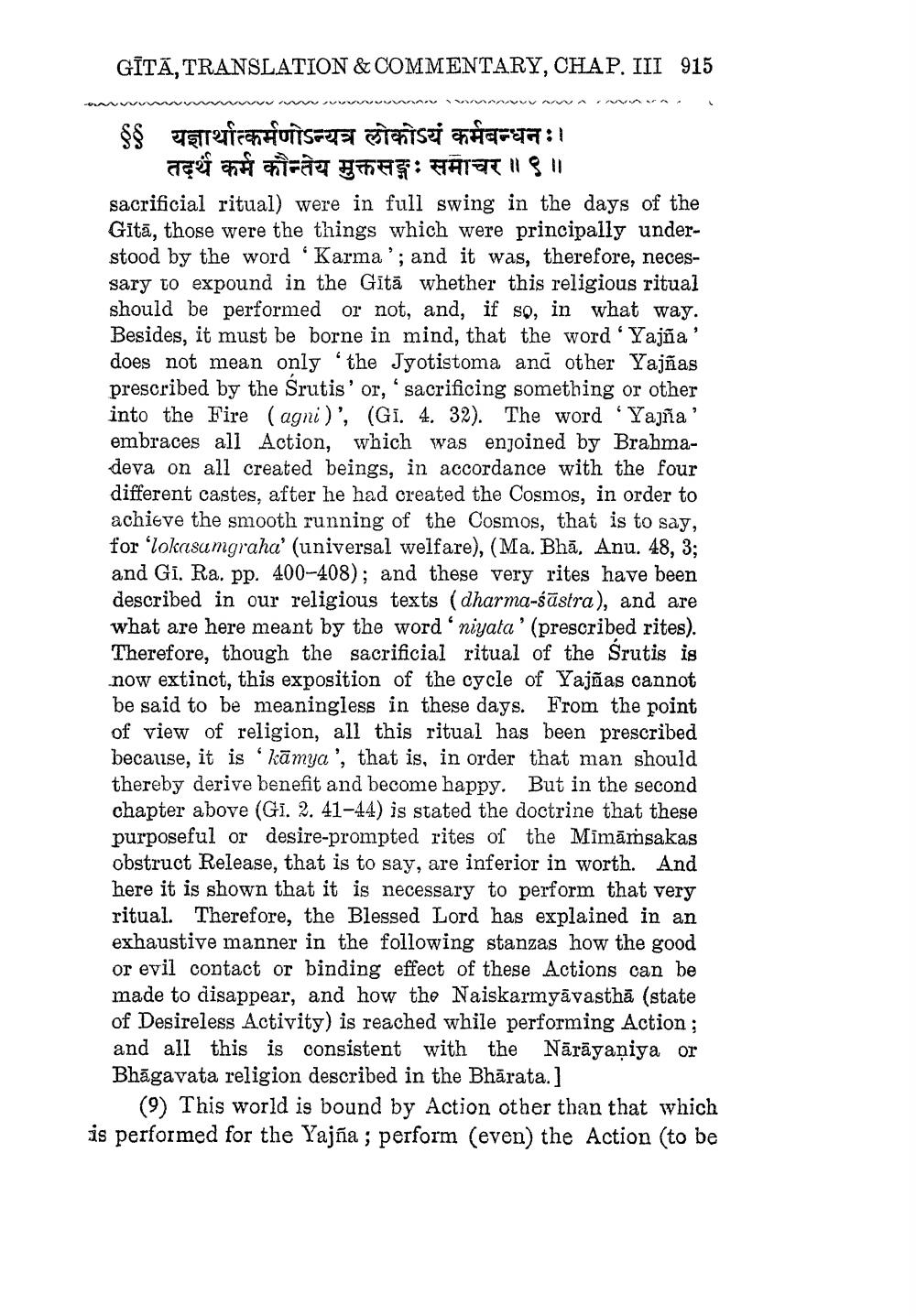________________
GĪTĀ, TRANSLATION & COMMENTARY, CHAP. III 915
www
६ यज्ञार्थात्कर्मणोऽन्यत्र लोकोऽयं कर्मबन्धनः।
तदर्थ कर्म कौन्तेय मुक्तसङ्गः समाचर ॥९॥ sacrificial ritual) were in full swing in the days of the Gītā, those were the things which were principally understood by the word "Karma'; and it was, therefore, necessary to expound in the Gītā whether this religious ritual should be performed or not, and, if so, in what way. Besides, it must be borne in mind, that the word 'Yajña' does not mean only the Jyotistoma and other Yajñas prescribed by the Srutis' or, 'sacrificing something or other into the Fire (agni)', (Gi. 4. 32). The word Yajña' embraces all Action, which was enjoined by Brahmadeva on all created beings, in accordance with the four different castes, after he had created the Cosmos, in order to achieve the smooth running of the Cosmos, that is to say, for 'lokasumgraha' (universal welfare), (Ma. Bhā. Anu. 48, 3; and Gi. Ra. pp. 400-408); and these very rites have been described in our religious texts (dharma-śāstra), and are what are here meant by the word ' niyata' (prescribed rites). Therefore, though the sacrificial ritual of the Srutis is now extinct, this exposition of the cycle of Yajñas cannot be said to be meaningless in these days. From the point of view of religion, all this ritual has been prescribed because, it is "kāmya', that is, in order that man should thereby derive benefit and become happy. But in the second chapter above (Gi. 2. 41-44) is stated the doctrine that these purposeful or desire-prompted rites of the Mināmsakas obstruct Release, that is to say, are inferior in worth. And here it is shown that it is necessary to perform that very ritual. Therefore, the Blessed Lord has explained in an exhaustive manner in the following stanzas how the good or evil contact or binding effect of these Actions can be made to disappear, and how the Naiskarmyāvasthā (state of Desireless Activity) is reached while performing Action; and all this is consistent with the Nārāyaniya or Bhāgavata religion described in the Bhārata.]
(9) This world is bound by Action other than that which is performed for the Yajña ; perform (even) the Action (to be




